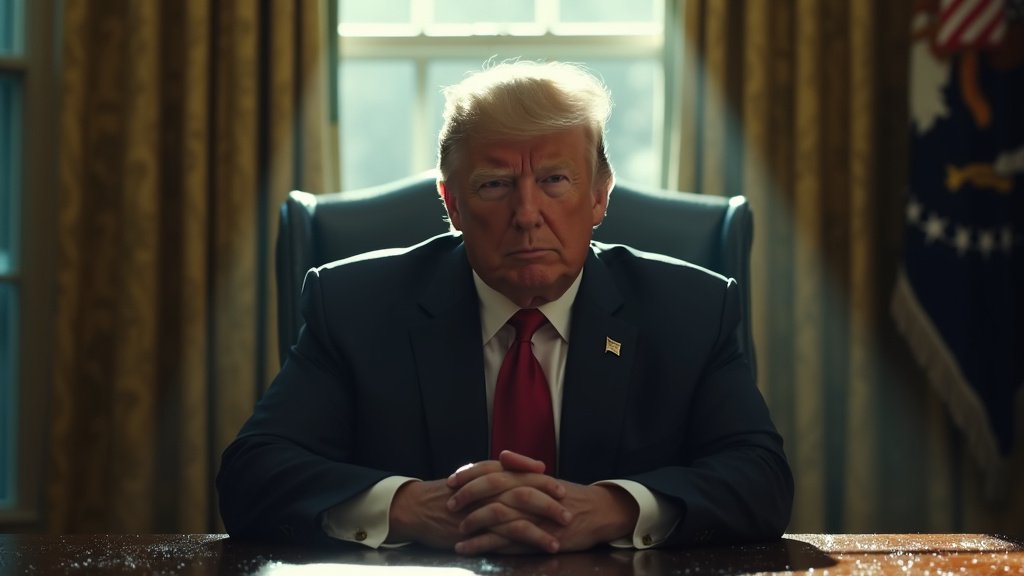A recent episode of “Washington Week with The Atlantic,” aired on May 9, 2025, convened a panel of distinguished journalists to dissect the complexities of President Trump’s foreign policy and its far-reaching implications on the global stage. Moderated by Jeffrey Goldberg of The Atlantic, the discussion featured insightful analysis from Susan Glasser of The New Yorker, Asma Khalid of NPR, David Sanger of The New York Times, and Nancy Youssef of The Wall Street Journal. The conversation provided a comprehensive look at the challenges faced by international allies and adversaries alike in interpreting and responding to the shifting landscape of American foreign policy under the current administration.
Navigating the Unpredictable World Stage
The central theme explored by the panel was the inherent difficulty in understanding President Trump’s leadership on the world stage. The discussion highlighted how deviations from traditional diplomatic norms and perceived unpredictability have created uncertainty for long-standing allies, often forcing them to re-evaluate their own strategic postures and reliance on the United States. Simultaneously, adversaries face challenges in anticipating U.S. actions, a factor that can either complicate diplomatic engagement or, in some instances, potentially embolden certain actors due to perceived inconsistencies in policy or rhetoric. The journalists offered perspectives drawn from their extensive reporting, shedding light on the practical effects of this dynamic in various geopolitical flashpoints.
Focus on Iran Policy and Military Considerations
A significant portion of the discussion was dedicated to President Trump’s policy regarding Iran. The panelists analyzed the administration’s stated objective: preventing Iran from acquiring a nuclear weapon. They delved into the tools and strategies being employed, or considered, to achieve this goal. A key point of focus was President Trump’s explicit stance of not ruling out military force concerning Iran’s potential nuclear ambitions. This position, the panel noted, represents a potent and potentially escalatory dimension of the policy, carrying significant implications for regional stability in the Middle East and international efforts to curb nuclear proliferation. The journalists debated the credibility of this threat and its impact on Tehran’s calculations, as well as the reactions of regional powers and global actors.
Unconventional Geopolitics: The Greenland Mention
The conversation also touched upon more unconventional aspects of President Trump’s foreign policy considerations, including a specific reference to his posture regarding Greenland. The panel discussed the implications of his position on not ruling out military force concerning Greenland. While seemingly unusual in the context of broader geopolitical threats like Iran, this point was highlighted by the journalists as illustrative of the wide scope and sometimes unexpected nature of foreign policy issues that have arisen under the administration. The brief but notable inclusion of this topic in the discussion underscores the panel’s effort to cover the full spectrum of foreign policy considerations, from major security threats to more unique geopolitical interests that have captured the administration’s attention.
The Political Fallout of Pope Leo XIV’s Election
Shifting from international security, the panel explored the significant domestic political implications of the election of the first American Pope, Leo XIV. This historic development, the journalists observed, holds considerable weight within the United States, particularly concerning the relationship between the Catholic Church and American political life, as well as the influence of Catholic voters. The discussion included an analysis of President Trump’s reaction to the election of Pope Leo XIV. The panelists dissected how his response might play politically, considering his outreach to religious constituencies and the broader dynamics of faith and politics in the American electorate. The election of an American Pontiff introduces a new variable into the political equation, and the panel examined how different political figures, including the President, are navigating its implications.
Diverse Expertise Illuminating Complex Issues
The strength of the “Washington Week with The Atlantic” format was evident in the varied perspectives brought by the panel. Susan Glasser offered insights shaped by her analysis of power and politics in Washington and abroad. Asma Khalid provided essential context from her reporting on American politics and demographics. David Sanger, a leading voice on national security, brought depth to discussions of nuclear policy and international relations. Nancy Youssef contributed her expertise on defense and the dynamics of the Middle East. Together, their combined knowledge allowed for a robust, multi-faceted examination of President Trump’s impact on the world stage, providing viewers with a comprehensive understanding of the intricate challenges and unexpected turns in contemporary foreign policy.
Conclusion
The discussion on May 9, 2025, underscored the complex and often challenging nature of understanding and responding to President Trump’s approach to the world. From critical security calculations regarding Iran, where the option of military force remains on the table, to unconventional considerations like the mention concerning Greenland, and the unique intersection of faith and politics highlighted by the election of the first American Pope, Leo XIV, his presidency continues to reshape global dynamics. The expert panel provided essential context for navigating this complex landscape, emphasizing the need for clarity amidst uncertainty for allies and adversaries alike as the world adapts to the ongoing shifts in American foreign policy.










